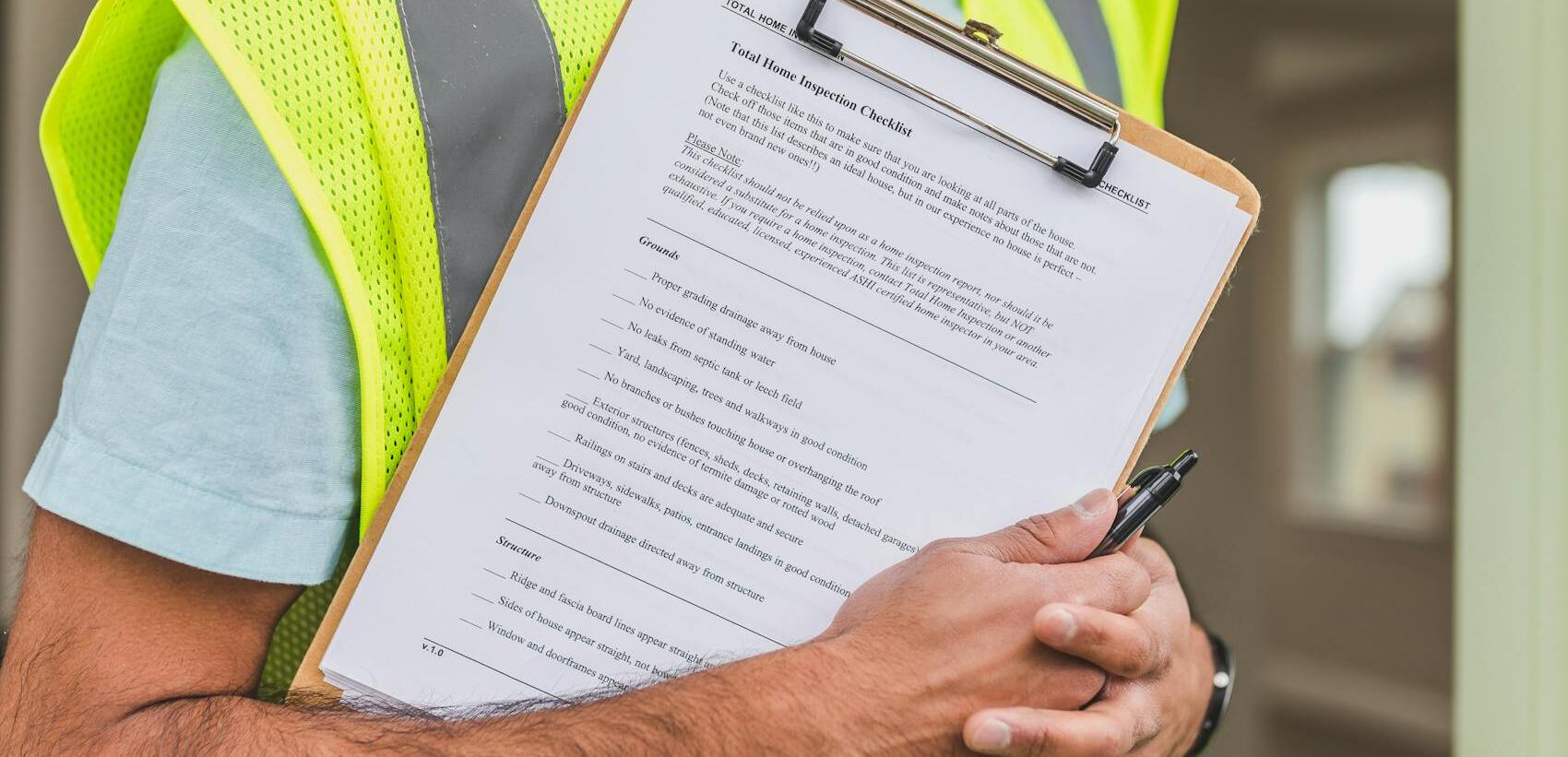7 Steps to a Boundary Dispute with Your Neighbor in Ohio

Boundary disputes with neighbors can be stressful, but they don’t have to escalate into legal battles. As an experienced real estate law firm, we’ve guided many clients to amicable resolutions that preserve neighborly relationships.
In this article, we’ll walk you through seven practical steps to address property line disagreements effectively and avoid costly litigation when possible.
1.Understand the Details of Your Property’s Boundaries
The first step in resolving any boundary issue is to clarify what your deed says about your property lines. Carefully review your deed, plat maps, and any available surveys. If you don’t have an up-to-date survey, consider having a new one conducted by a licensed surveyor. They can place official markers and produce a drawing detailing the boundaries.
It’s also wise to check local zoning regulations and any Ohio laws that may be relevant to your situation, such as rules on boundary fences or easements. The more you understand about your property lines, the better equipped you’ll be for a productive conversation with your neighbor.
2. Open a Friendly Dialogue with Your Neighbor
Approach your neighbor calmly and respectfully. Invite them to talk through the boundary question collaboratively. Share your perspective, but also listen to understand theirs. Stay focused on finding a solution rather than determining who’s right or wrong.
Avoid accusatory statements like “you’re encroaching on my land.” Instead, try something like, “I’ve noticed our fence doesn’t quite match my property survey. Perhaps we could look at it together?” A cooperative demeanor sets the stage for an agreeable resolution.
An informal, friendly conversation has several advantages:
- Prevents escalation into a legal dispute
- Allows creative, flexible solutions
- Costs nothing, unlike mediation or litigation
- Maintains a positive neighborly relationship
However, if your neighbor is unreceptive or if tensions rise, don’t push the issue. Explore other dispute resolution options and consult a knowledgeable attorney.
3. Bring in a Neutral Mediator or Arbitrator
When a boundary disagreement becomes heated, a neutral third party can often help. Mediation and arbitration services provide an objective facilitator to guide the discussion and explore resolutions.
In mediation, a trained mediator assists you and your neighbor in negotiating an agreement. The mediator doesn’t decide the outcome, but rather supports you in reaching a voluntary solution. Mediation can be an effective, affordable alternative to litigation.
Arbitration is a bit different. The arbitrator, often an attorney or retired judge, conducts a hearing and issues a legally binding decision. Arbitration is more formal than mediation but still usually faster and cheaper than a trial.
Many Ohio counties offer dispute resolution programs that include boundary issues. For example, the Cleveland Mediation Center and the Dayton Mediation Center provide low-cost services. Your local bar association can also offer referrals to private mediators and arbitrators experienced in real estate matters.
However, working with a knowledgeable real estate litigation attorney can provide significant advantages. At Cavell Law, we have extensive experience guiding clients through mediation and arbitration to resolve boundary disputes effectively. We can help you understand the process, prepare a compelling case, and advocate for your interests to achieve the best possible outcome. With our deep understanding of Ohio property law and commitment to client service, you’ll have a dedicated legal partner working to protect your rights every step of the way.
4. Suggest a Fair Compromise or Land Swap
Even if you believe the disputed land is rightfully yours, consider proposing a compromise. Perhaps you could offer to split the area 50/50 or negotiate an easement allowing certain uses. Maybe a “lot line adjustment” to alter the boundary could resolve the issue.
In some cases, a land swap might make sense. For instance, if your neighbor is encroaching a few feet into your side yard, you might offer to deed that strip to them in exchange for a same-sized piece elsewhere. Our real estate lawyer can help you draft and record a lot line adjustment or new deeds.
Benefits of Reaching a Settlement
Reaching a mutually agreeable settlement with your neighbor has several advantages over a court battle:
- Allows an amicable, flexible resolution
- Avoids the costs, delays, and stress of litigation
- Lets you control the outcome rather than a judge
- Maintains privacy compared to a public trial
Of course, some boundary disputes simply can’t be settled out of court, especially if the land is very valuable or if emotions are running high. If your neighbor refuses to negotiate or compromise, you may need to assert your property rights through formal legal action.
5. Pursue a Quiet Title Lawsuit as a Last Resort
If you’ve exhausted all attempts to resolve the boundary dispute cooperatively, it may be time to file a lawsuit. In Ohio, a legal process called a “quiet title action” is used to definitively establish property boundaries.
In a quiet title case, you’re asking the court to issue an order declaring the official boundary line. You’ll need to present evidence like deeds, surveys, and photographs. The court will consider each side’s arguments and evidence before issuing a decision.
Ohio’s Rules for Boundary Lawsuits
It’s critical to understand Ohio’s legal requirements for boundary claims:
- The deadline to file is 21 years from when the disputed use began (Ohio Revised Code § 2305.04)
- You must prove your case by “clear and convincing evidence,” a high legal standard
- You’ll likely need an attorney to gather evidence and argue the complex issues effectively
- The court will apportion the survey and litigation costs between the parties
Boundary lawsuits can be expensive, stressful, and slow. It’s not unusual for legal fees to exceed the value of the disputed land. And even if you win, you may permanently damage your relationship with the neighbor. That’s why we advise pursuing alternatives first and using litigation only as a necessary last resort.
6. Understand Ohio’s Laws on Adverse Possession
In some boundary disputes, the legal doctrine of “adverse possession” comes into play. Adverse possession allows someone to acquire a piece of land they’ve used without permission from the true owner.
To claim adverse possession in Ohio, a person must prove they’ve used the land:
- Openly
- Exclusively
- Continuously
- Adversely (without owner’s permission)
for at least 21 years (Ohio Revised Code § 2305.04).
If a neighbor can establish these elements, the court will grant them legal title to the disputed area—even if it lies within your deeded boundary. However, you may have defenses, such as showing that you gave the neighbor consent to use the land or that their use hasn’t lasted 21 years.
Adverse possession claims are very fact-specific. If your dispute involves an adverse possession issue, it’s essential to consult an experienced real estate lawyer. They can assess the situation and explain your options.
7. Work with an Experienced Ohio Real Estate Attorney
Boundary disputes can be legally complex and emotionally charged. While it’s usually best to start by trying to work things out amicably with your neighbor, some disagreements are too difficult to resolve on your own.
Consulting a knowledgeable real estate attorney early in the process can help you understand your rights and explore effective solutions. A lawyer can review your deed and survey, assess the strength of your position, and suggest strategies to protect your property interests.
If the dispute ends up in court, your attorney can vigorously assert your claims and defenses. They can also identify opportunities for a creative settlement that might not be obvious to you. Having a skilled advocate on your side can make all the difference.
When choosing a real estate lawyer for your boundary dispute, look for someone who:
- Has experience with Ohio boundary and title claims
- Takes time to understand your specific situation and goals
- Offers practical advice and a clear strategy
- Is responsive, professional, and ethical
- Makes you feel heard and fights for your interests
At Cavell Law, our real estate attorney has years of experience helping property owners resolve boundary disputes. We take pride in giving each client personal attention and tireless advocacy focused on their unique needs.
If you’re facing a boundary disagreement in Ohio, don’t hesitate to reach out to us. We’re here to listen, explain your options, and guide you to the best possible outcome. Contact us today to schedule a consultation. Together, we can protect your property rights and bring you the peace of mind you deserve.









